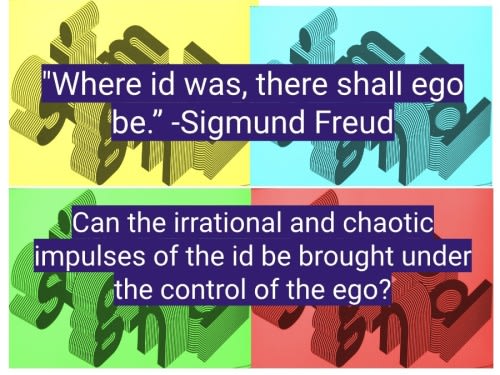Does Psychanalysis Unveil the Unconscious?

posted 9th July 2024
Unveiling the Unconscious: The Transformative Power and Controversy of Psychoanalysis
Psychoanalysis is a therapeutic method and theory of psychology that was founded by Sigmund Freud in the late 19th century. Freud, an Austrian neurologist, developed psychoanalysis as a way to treat mental disorders by delving into the unconscious mind. He believed that unconscious conflicts, often stemming from childhood, significantly influence behaviour and emotions. Freud's theories revolutionised the understanding of mental health and laid the groundwork for modern psychotherapy.
Psychoanalysis works by exploring the unconscious processes that affect an individual's thoughts and behaviors. This exploration is typically carried out through techniques such as free association, where patients are encouraged to verbalize their thoughts without censorship or restraint, and the interpretation of dreams, which Freud considered the "royal road to the unconscious." The goal is to bring repressed conflicts and feelings into conscious awareness, enabling the patient to deal with them constructively.
Psychoanalysis is usually conducted by trained psychoanalysts, who undergo extensive training that includes personal analysis, theoretical study, and supervised clinical practice. While not all psychoanalysts are medical doctors, having a background in medicine can be beneficial. Medical doctors, particularly those specialized in psychiatry, have a deeper understanding of the biological aspects of mental health disorders. This medical knowledge allows them to integrate psychoanalytic techniques with other treatment modalities, such as medication, providing a more comprehensive approach to patient care.
Psychoanalysis has been used to treat a variety of mental health conditions, particularly those related to anxiety, depression, personality disorders, and trauma. Freud initially applied psychoanalysis to cases of hysteria and other neuroses, but the approach has since been adapted to address a broader spectrum of psychological issues. The in-depth nature of psychoanalysis makes it particularly suitable for individuals with complex and deep-seated emotional problems.
Studies have shown mixed results regarding the efficacy of psychoanalysis. Some research indicates significant improvements in patients undergoing psychoanalytic therapy, particularly in the long-term treatment of chronic conditions such as depression and personality disorders. A study published in the "Journal of the American Psychoanalytic Association" found that psychoanalysis can lead to enduring changes in personality and emotional functioning, suggesting its potential for deep and lasting therapeutic impact.
Theoretical Foundations and Efficacy
Psychoanalysis is based on several core concepts, including the unconscious mind, defense mechanisms, and psychosexual stages of development. Freud's theory posits that unresolved conflicts from early developmental stages can result in psychological distress in adulthood. By bringing these conflicts into consciousness, psychoanalysis aims to resolve the underlying issues causing the symptoms.
The effectiveness of psychoanalysis has been supported by various studies, although it remains a subject of debate within the psychological community. A meta-analysis published in the "American Journal of Psychiatry" concluded that long-term psychoanalytic therapy is more effective than shorter-term therapies for complex mental health issues. Despite the debate, many practitioners and patients endorse the benefits of psychoanalytic treatment, highlighting its ability to foster profound personal insight and emotional growth.
"Where id was, there shall ego be."
One of Freud's most famous quotes, "Where id was, there shall ego be," encapsulates his therapeutic goal of psychoanalysis. The "id" represents the unconscious, primitive desires and instincts, while the "ego" is the conscious, rational part of the mind that mediates between the id and reality. Freud believed that through psychoanalysis, the irrational and chaotic impulses of the id could be brought under the control of the ego, leading to healthier, more adaptive behavior.
This quote signifies the transformation of unconscious drives into conscious, manageable thoughts and actions. This process involves bringing repressed desires and conflicts into awareness and understanding them, thus allowing the rational mind to manage them better. Essentially, Freud's aim was to transform the turbulent, uncontrolled forces of the id into the organized and regulated functions of the ego, fostering greater self-control and psychological health.
In conclusion, psychoanalysis, founded by Sigmund Freud, remains a significant therapeutic approach for addressing deep-seated psychological issues. Conducted by trained professionals, it seeks to bring unconscious conflicts into conscious awareness, facilitating healing and personal growth. While its efficacy is debated, numerous studies and endorsements by celebrities underscore its enduring impact and relevance in the field of mental health.



